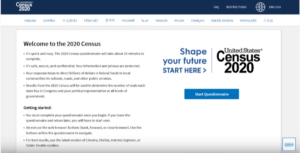Biden Announces Health Care Expansion for DACA Recipients
DACA recipients had been ineligible for the Affordable Care Act, Medicaid, and other government subsidized health care. 2017 rall in Los Angeles by Defend DACA via Wikimedia Commons / CC BY-SA 3.0
2017 rall in Los Angeles by Defend DACA via Wikimedia Commons / CC BY-SA 3.0
The Biden administration has announced a plan that would allow Deferred Action for Childhood Arrivals (DACA) recipients to apply for Medicaid and the Affordable Care Act’s health insurance exchanges. The decision is expected to impact hundreds of thousands of migrants living in the country without access to affordable health care.
“[The] news is a major victory for DACA recipients and their families that is the direct result of years of tenacious organizing,” said Juliana Macedo do Nascimento, deputy director of federal advocacy of United We Dream, in a press release. “Having good reliable health care is a human need, and this rule change will mean that more people will have the life-saving health care coverage they need to take care of themselves and their families.”
According to U.S. Census Bureau data, more than 17% of Latinx people are uninsured—one of the highest rates in the U.S. DACA recipients had been ineligible for the Affordable Care Act, Medicaid, and other government-subsidized health care. Organizers are now celebrating Joe Biden and the Department of Health and Human Services’ decision to remove what they say is a “cruel and unnecessary” bar on eligibility for young people.
DACA is still being challenged in the courts.
“This is great news for DREAMers who have often delayed or avoided getting the health care they need,” said Lupe M. Rodríguez, the executive director of the National Latina Institute for Reproductive Justice, in a statement. “[Latinxs] face persistent barriers that deny us the tools to stay healthy. We are proud to stand with NAPAWF, and many other advocates, to ensure that those of us who come here for a better life can have access to our human right to health care and are better able to take care of ourselves and our families.”
A survey published last week by the U.S. Immigration Policy Center at the University of California, San Diego; United We Dream; the National Immigration Law Center; and the Center for American Progress found that Dreamers continue to contribute to communities across the U.S. and that their work strengthens the local and national economies. Key findings from the survey include that 63.6% of DACA recipients would be less likely to continue their education, and 65.3% would be less likely to pursue new educational opportunities if DACA were to be ended. Meanwhile, 46.6% of DACA recipients would be less likely to look for a new job, 48.5% would be less likely to report wage theft or other abuses by their employer, and 66.6% would be less likely to pursue an occupational license.
“For more than 10 years, DACA has had a transformative impact on my life, allowing me to go to school, work, and build a life with my family and loved ones in the U.S.,” said Diana Pliego, a policy associate at the National Immigration Law Center. “And for more than 10 years, DACA’s impermanence has kept me and hundreds of thousands of other immigrant youth like me on edge that the homes we’ve created here could be upended because of a politicized court ruling or politicians playing a game with our futures. DACA recipients are vital to this country, and it is past time for Congress to step up and pass a permanent solution.”
DACA is still being challenged in the courts. In a lawsuit filed by Texas state officials, the U.S. Court of Appeals for the 5th Circuit in October 2022 upheld a Texas federal district judge’s ruling that DACA is unlawful but allowed the program to remain in place for current recipients. Ending DACA would mean nearly 600,000 recipients across the country would be vulnerable to deportation and forcibly separated from their communities.
While organizers consider the health care expansion a victory, they will continue to fight to pass all provisions of the Health Equity and Access Under the Law (HEAL) for Immigrant Families Act.
“While this is an important step, the DACA program continues to be under attack, and millions of other undocumented people without DACA still lack access to life-saving health care,” Macedo do Nascimento said. “While attacks on DACA could take it back to the Supreme Court, we need President Biden to protect DACA recipients and immigrant youth without DACA. We also need Congress to do its job and pass a path to citizenship for all 11 million undocumented people.”
While organizers consider the health care expansion a victory, they will continue to fight to pass all provisions of the Health Equity and Access Under the Law (HEAL) for Immigrant Families Act, which would ensure Medicaid and CHIP eligibility for lawfully present immigrants by removing discriminatory five-year waiting periods and extending ACA insurance eligibility to undocumented immigrants.
“We will continue to advocate for Congress to pass a pathway to citizenship that provides DACA recipients and immigrant youth the peace and stability they need to thrive,” Rodríguez said. “At Latina Institute, we believe that all of us, of every documentation status, should have access to the full range of health care options, and we celebrate policies like this that set up individuals and families in our communities to live with health, dignity, and justice.”
Your support matters…Independent journalism is under threat and overshadowed by heavily funded mainstream media.
You can help level the playing field. Become a member.
Your tax-deductible contribution keeps us digging beneath the headlines to give you thought-provoking, investigative reporting and analysis that unearths what's really happening- without compromise.
Give today to support our courageous, independent journalists.





You need to be a supporter to comment.
There are currently no responses to this article.
Be the first to respond.